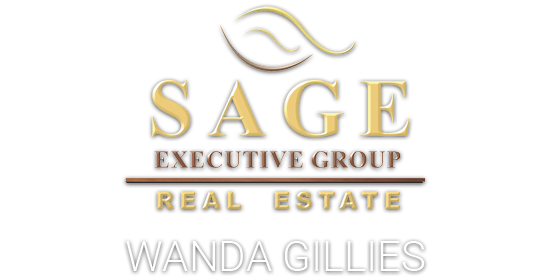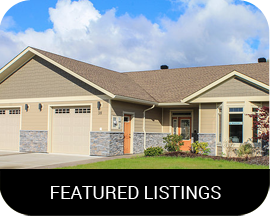 Buying Real Estate in Kelowna
Buying Real Estate in Kelowna
The bottom line is that buying real estate in Canada is very easy.
From a residency point of view, if you plan to stay in Canada for 6 months or less each year, the government considers you a non-resident, which means that you can still open a bank account and buy property, etc. If you plan to live in Canada for more than 6 months per year, you must apply for immigrant status.
It is important to note, however, that while the majority of Provinces (British Columbia, Ontario, Quebec, Nova Scotia, Newfoundland, New Brunswick) have no restrictions on foreign ownership of real estate in Canada, some do limit the amount of property/land that a non-resident can purchase. On Prince Edward Island, non-resident buyers must apply to the Island Regulatory and Appeals Commission for land over 5 acres in size, or land with a shore frontage greater than 165 feet. In Manitoba, non-residents are prevented from owning farmland unless they actually plan to move there within 2 years. Non-residents may not own land over 10 acres in size in Saskatchewan, whilst in Alberta they may only own up to 2 plots of land not exceeding 20 acres in total.
Once you have chosen a REALTOR®, secured a mortgage and found your property, an offer is made and once accepted, a deposit is payable. When buying a house in Canada, an offer must be made in writing so that all aspects of the transaction are clearly outlined within the offer. Once you (the buyer) have signed the document, it becomes legally binding. If you withdraw from the offer at this stage, you may lose your deposit and may also be sued. Make sure that every item staying in the property, i.e. carpets, fixtures and appliances, is written on the offer as ‘chattels included’. Your REALTOR® should also insert two clauses stating that the offer will only proceed subject to building inspection and that you as the buyer are able to meet your financial obligations. Once your offer is complete, it will be presented to the seller and negotiations will be made. This may include changes in price, completion date and chattels. The changes are initialed by the seller and returned to you (the buyer) for your initials. The resulting Agreement of Purchase and Sale will state the purchase price and the deposit. The deposit is placed in a trust account and is credited towards the purchase price once the offer has been accepted by both the seller and the buyer and the transaction is complete.
Most REALTORS® are self-employed and are on negotiable rather than fixed commission (payable by the seller). A purchaser can buy property using any REALTOR®, regardless of whether that REALTOR® originally listed the property. There are usually 2 REALTORS® involved in a sale – the seller’s agent and the buyer’s agent. The commission received upon the sale of the property is divided between the 2 REALTORS®. Some agents can also be dual agents but must declare this to buyers and sellers alike.
Before looking for your next home take the time to get pre-qualified by the bank or mortgage broker you choose. This can save you hours of searching for homes in the wrong price range or worse, purchasing a home and then finding out you don’t qualify for financing. Pre-qualifying gives you peace of mind, helps narrow your search criteria and most importantly, gives your RE/MAX agent a negotiating edge by being able to alleviate the sellers concern over financing. The latter is especially important should a competing offer surface.
Mistake #2. Not Shopping For Mortgage Terms
Rates are negotiable! Banks will sharpen their pencils to get your business especially if you have a good credit rating and bring other business to them e.g. RRSP’s, general account, savings etc. Posted rates should viewed as a starting point. You need to know what the best rate is and this is usually done by get competitive quotes. Also, ask whether the bank will cover appraisal fees, and about buy-out fees, penalties, payment options, portability etc. The time spent can save you thousands of dollars over the life of the mortgage.
Mistake #3. Not Getting Professional Inspections
Nobody wants to purchase a home only to find out later there are defects, latent or otherwise. Ensure you obtain inspections where needed e.g. home inspection, structural engineer, insect, radon etc. If the inspection identifies deficiencies you may be able to negotiate the purchase price to cover required repairs or make your satisfaction of the inspection subject to the homeowner remedying the problem. Your RE/MAX agent can advise you on inspections you should consider.
Mistake #4. Not Using A Professional Real Estate Agent
Your RE/MAX agent can help you make a purchase with the least amount of problems. He or she can ensure the price you pay is market value. They can offer expert advice on what to look for, conditions to include, negotiation strategy etc. After all, they work for you.
Mistake #5. Buying First Before Selling
If price is important you should always sell your present home before buying another. It has the advantage in letting you know exactly how much money you will have available for your next purchase. Selling your home first allows you to place fewer conditions on your purchase which makes your offer more attractive to a seller. They often will demand more money to take a “subject to” offer which takes their home off the market. The other advantage is if you find a terrific house, chances are others will also find it attractive and you stand to lose it if you can’t make an unconditional offer.
Mistake #6. Not Knowing The Full Cost Of Home Buying
Know all the costs associated with your purchase. Consider the following costs: legal fees, transfer tax, property taxes, new home landscaping, fencing, appliances, window coverings.
1. To Quit Renting
Why contribute to someones mortgage payments when you could be paying off your own? With the current market increase in rent it can sometimes be cheaper to own than it is to rent and there is no fear of your mortgage payments suddenly increasing.
2. Security
You don’t have to worry about your house being sold out from under you to out-of-province investors. If renting and faced with this scenario, you could find yourself faced with an unreasonable increase to your rent, thereby leaving you potentially homeless or too poor to eat. These increases could continue indefinitely so the investors can make more money or so that you will feel forced to leave and they can turn your building into a condominium.
3. Investment
The price of real estate continues to increase every year, therefore purchasing real estate is one of the safest long-term investments a person can make. If you had the choice between putting money towards a new car or a new house, a house should win every time as it will appreciate in value over the years whereas a car does the opposite. Once you own one house and build some equity you may also be in a financial position to buy another and rent one out.
4. Low Interest Rates
Right now we have some great interest rates which will help you get your foot on the first rung of home ownership. It is a great time to get into the market and lock into a really good interest rate and build equity.
5. Pride of Ownership
One of the biggest reasons people buy properties is the pride of saying they own something. Even if it is a little starter home or apartment style condo, it is yours and you can do with it as you please, and for that, a person should be proud, as ownership is an accomplishment.
6. Privacy
If you own your own house, you don’t ever have to worry about the owners checking up on you, since you are the owner! You will gain much more independence and privacy when you have your own property.
7. Equity
One of the best things about owning a home is that you are building equity, which gives you more freedom financially as you can access a home equity loan. You may then borrow against the equity you have built in your home for a wide variety of reasons including home improvements, paying for school for your children, medical reasons, or even starting your own business. Check with your lender, as these vary from one to the next.
8. Freedom
You are free to do what you want in your own home, whether you want to paint the walls in pink and black zebra or put carpet on the ceiling (not recommended of course!) You have the freedom to express yourself and your personal tastes and change the house to suit your needs. You can hang as many pictures as you want and do renovations as you please. Just keep in mind that when you are ready to sell your home, not everyone may like what you do.
9. Sense of Community
Owning a house gives you a feeling of belonging in that neighborhood and gives you the sense of putting down roots and getting established. There are also many neighborhood groups that you can become involved in, and if you have children it may be of benefit for schools and friends.
The largest outlay is the down payment. As a first time buyer, this would likely represent only 5 – 10% of the purchase price. Be prepared to pay for additional costs. These vary depending upon home type, location etc.:
- Legal Fees & Disbursements
HST or GST on the services such as on legal fees, inspection fees etc.
Land Transfer Tax
Property taxes and adjustments (reimbursed to the vendor)
Interest on interim financing, if any
Utility Payments
Strata or Condominium Fees
Survey Fee
Home Inspection Fee
Water quality and quantity certificate (if applicable)
Appraisal Fee
Mortgage broker’s fee (if applicable)
Mortgage Loan Insurance Premium (if less than 20% down)
Mortgage Loan Insurance Application Fee (if less than 20% down)
Moving Expenses
Renovations and repairs
Furniture, paint, carpeting, window coverings, etc.
Service and Utility Hook-up Fees
Property/Condominium Insurance
Mortgage Application Fee
Deed and/or Mortgage Registration Fee
Additionally, once you have purchased your home, you will incur regular expenses on a monthly, quarterly or yearly basis. Some of these costs include:
Mortgage Payment
Water and/or Sewer Payments
Electricity and Gas Services
Cable, Telephone and Internet Services
Property Taxes
Strata or Condo Fees
Repair/Maintenance Expenses
Homeowner’s Insurance
So, always prepare a budget considering what on-going costs you might face.
How do I Make an Offer to Purchase?
First, work with a licensed REALTOR® as you then know you are working with a professionally trained agent who will explain everything as you go along. Once you have found a home you are interested in buying your agent should walk you through the process of drafting an offer to purchase.
For myself, I will discuss the many options such as closing dates, deposit, and other terms or conditions that protect your interests. Then, I will communicate your offer to the seller or the seller’s real estate agent as your representative.
Be aware that some properties are in demand and you will not be the only interested party making an offer so we will be prepared for those situations.
An offer may be with or without conditions
An offer without conditions is known as a firm offer and one with conditions is known as a conditional offer. A conditional offer is the most common and represents your interests with the placement of certain “conditions” that must be satisfied before the purchase offer becomes a binding contract. Some of these conditions could be “subject to financing approval”, “subject to the strata council allowing pets”, “subject to the buyer’s house selling”, “subject to an approved home inspection”, and many other possibilities.
Then what happens?
The seller may accept your initial offer, reject your offer or present a counter-offer. The counter-offer may differ from your original offer in respect to price, conditions, the closing date or any other items. Offers can be countered back and forth between the parties until one of you accepts or rejects, ending the negotiations. You always have the right to accept, reject or counter offer.
Inclusions and Exclusions
These are specifications within the offer that detail the items to be included or excluded from the purchase of the property. Typical inclusions are appliances, window coverings, fixtures and decorative pieces.
Deposit
A deposit is provided from the buyer to the seller as a token of the buyer’s assurance and intention to buy the property involved. The deposit is simply a part of the total offered price, it is placed in trust to demonstrate your sincerity. The deposit amount is applied against the total purchase price of the home once the sale has closed.
Conditions
Conditions are items that are usually put in place to protect a party’s interests upon selling or buying the property and they refer to things that must occur or be in place before the sale closes. They may include such things as a requirement for the seller to repair something.
Closing Date
This is usually the date that the legal ownership of the property transfers from the seller to the buyer and, unless otherwise noted, when the funds for the purchase are concluded. You will want to consider what date would be most ideal for you to take possession and set the completion date one or 2 days prior to that.
Possession Date
The date and time that the buyer takes possession as specified in contract of purchase sale. Usually this is the day after completion although sometimes it might be the same day as completion. This is an important date because it is on this day that you assume responsibility for tax, heat, light and other costs of owning the property.
Purchase Price
The purchase price is the amount buyer and seller agreed upon as fair price for the home. The purchase price is usually dependent on market conditions and may turn out to be greater or less than the seller’s original asking price and greater than the buyer’s preferred price. This is the factor that drives most negotiations and is usually agreed to before any of the other conditions are dealt with.
Legal Needs
Purchasing a home involves a lot of paperwork, most of which are contractual documents that will legally bind you to the numerous terms and conditions. For this reason it is important to have a good lawyer or notary public acting for you. In all contracts you should have someone to protect your rights and interests and an experienced real estate lawyer or notary is important.
Hiring Lawyer/Notary Public
Purchasing a home involves a lot of paperwork, most of which are contractual documents that will legally bind you to the numerous terms and conditions. For this reason it is important to have a good lawyer or notary public acting for you. In all contracts you should have someone to protect your rights and interests and an experienced real estate lawyer or notary is important.
If you don’t have a lawyer or notary public, you can look for a referral from friends, family or business acquaintances. I also have a list of lawyers/notaries that work in our area. Look for someone with real estate experience and discuss their fee scales.
You will need a lawyer or notary public to process your purchase and ensure the terms are met:
1. the legally correct property is transferred to you
2. title is actually transferred to your name
3. ensure title is free and clear of prior owners encumbrances, or advises you on encumbrances
4. ensure your mortgage is registered properly on title
5. explain the process and the steps that need to be completed before you get the keys to your new home.
Statement of Adjustments
Your lawyer/notary public will prepare a “Statement of Adjustments” outlining all the financial aspects of your sale. This is an important document as it identifies the funds you have paid & where they went.
Home Inspection
A home inspection is an objective visual examination of a home’s structure and systems.
I always recommend a home inspection. The fees (usually around $400) are quite reasonable when you consider the several thousands of dollars you are paying for your home. For such a small amount you get some peace of mind knowing that a professional inspector has done a detailed inspection for you.
Here are some other reasons to always get a home inspection:
To ensure you are not surprised by major defects
So you can be advised about the various elements of the home including heating and cooling systems, structure, electrical and plumbing
To learn about how the mechanical systems work and need to be maintained
Home inspectors are often referred by family or friends and I also keep a list of local inspectors for your use. Look for one that is trained and certified by a national organization such as Canadian Association of Home Inspectors (CAHI) or National Institute of Building Inspectors (NIBI) and who has errors and omissions insurance. Be very careful about hiring someone who offers to do any work that is recommended during the inspection. This is often a conflict of interest and a second opinion should be obtained.
Order the inspection after your offer has been accepted (after you and the seller have agreed on price). The contact will already state how much time to complete the inspection.
If as a result of the inspection, you have further concerns, hire a specialist in that area conduct a more extensive examination of the concern.
Mortgage Information
Mortgage lending is a highly competitive field. Information on mortgage rates, which can change daily, is available in local newspapers, through mortgage brokers, from individual lenders and of course through conventional financial institutions. When you are shopping for a loan, interest rates tell just part of the story. You will also need to study the various fees lenders charge and many mortgages today are almost custom-tailored to individual needs with many options available. We have brought a mortgage broker into our office to help search out the nearly 70 lenders in Canada for the best plan for you. If you are already working with a financial institution our in-house broker will provide you with a no charge second opinion to help ensure you are getting the best deal for you.
Source: http://www.remax-western.ca/writing-offer
Imagine the Property Vacant
Your furnishings and decorations will be the ones filling this new residence. Don’t be swayed by beautiful furniture; it leaves with the owner.
Income + Lifestyle = Mortgage Payment
Sit down with your professional real estate agent and honestly discuss your income level and living expenses. Take into account future considerations, children, add-ons, amenities, and fix-ups. Your dream home is certainly worth a sacrifice, but don’t mortgage your entire future.
View Several Homes
See at least 7-10 properties. Don’t move too slowly, but don’t move on the first property you see. With your agent’s help, you should be able to view enough properties to get a good overall perspective of the home market. When you find the right property, all the leg work will be worth it.
Utilize Your Team
By aligning yourself with the right real estate professional, you will have an entire team at your disposal. Utilize your lender, title rep, and agent. Each of them should work hand in hand for your benefit. Explore all the options before you sign.
Be a Detective
Check out all costs and expenses before you sign, including utilities, taxes, insurance, maintenance, and home owner dues if applicable. Make sure all utilities (gas, electricity, and water) are on during your walk-through so you can inspect everything in working order. Ask lots of questions and be very detail conscious.
Do a Final Walk-through
Visit the property after all furnishings have been moved out to be sure there are no surprises. Be absolutely positive the property was left exactly as you had agreed upon in the contract. Things that could have been spotted in a final walk-through are often unintentionally overlooked.
Plan For Flexibility
Closing dates are not written in stone. Allow for contingencies and have a back-up plan. If you or the sellers need a little more time to conclude the final arrangements, don’t let these delays upset or frustrate you. These types of circumstances are not uncommon in a real estate transaction.
If It’s Not In Writing, It Doesn’t Exist
All promises and discussions should be in writing. Don’t make any assumptions or believe any assurances. Even the best intentions can be misinterpreted. Have your professional keep an ongoing log in writing of all discussions and get the seller’s written approval on all agreements.
Loyalty Breeds Loyalty
Be open, honest and up front with your team. Hard feelings and disloyalty will cause headaches, delays or may even keep you from getting into the home you worked so hard to locate. Take the time to select the right team in the beginning and your first home purchase will be a pleasing and memorable experience.
What is best for you?
This is a question that only you can answer, but one that some people don’t think about long enough before answering. The answer really comes down to your lifestyle, and your wants and needs. If you have a large family and want a yard with space for them to use freely, then a condo probably isn’t for you. If you really enjoy your space, privacy, and having absolute control over all the decisions that affect your home, a condo probably isn’t for you. If you live a busy life and would like to simplify your living arrangements by having virtually no yard work or snow removal, then a condo may be what you’re looking for. If you’re looking to down size after owning a large home, but aren’t quite ready to give up the comforts a home provides, a bungalow style condo may be what you are after. If you are a first time home buyer and owning a house and all that goes with it seems intimidating, a condo is probably a good step to get into the market. You can always move into a house when you and your lifestyle demand it.
Both houses and condominiums afford tons of different styles and options. Traditionally the real estate market was primarily driven by houses. Over the past few years we are starting to see this change. The demand for condos has risen, and as a result, new condo developments are abundant. Even within the last year, there has been a huge growth in condo conversion projects happening across the country. There are a variety of different styles of condos, each with their own benefits. Apartment style condos are for those who generally need less space and don’t mind the atmosphere of an apartment-style living situation. They generally either have underground, secure parking or outdoor parking available to the owners. Townhouses are geared towards people who need a bit more space with a bit more privacy. There are quite a few townhouses available with single car garages but just as many without. The next step up is a bungalow style condo which gives people in most cases as much room as a home but with less exterior maintenance.
Both types of ownership are great investments, as long as you are aware of what types of repairs may be needed in the near future for both types of ownerships. If you are looking at a condo it is important to familiarize yourself with the condo board and how they operate. Find out what you as a home owner are responsible for. As our real estate market continues to grow, so does the need for affordable housing and condos are a great first step.
Houses
Private yard.
Maintenance outside is always required.
Not required to ask anyone if you want to paint your outside door or put on a new light or a new mailbox.
No condo fees.
You are responsible for all insurance costs.
You have total control (within the law) of what you can do to your property
Condos
Generally freedom to do what you wish inside (within the law and your condo agreement), but outside you normally need permission from the condo board for many changes and/or improvements.
Monthly condo fees that usually include water and sewage, and generally in the case of apartment style condos heat is also included (if it is hot water heat, watch out for electrical heat).
Exterior maintenance including snow removal and landscaping is taken care of by the condo association (from your monthly condo fees).
Insurance that covers the exterior and the building structure itself are part of your condo fees (but you will need your own personal insurance for the interior and personal affects, much like renters insurance).
Shared Common Spaces
Condos can often have restrictions put in place when the condo board was first setup or that have been voted on by everyone in the condo association.
Things to watch for are:
Pet restrictions,
Age restrictions,
Rental permission, etc.
Other key things to consider when looking at condos are:
Do they have enough money in the reserve fund to cover maintenance and other issues?
How do they pay for major improvements? (From reserves collected from monthly fees or from special individual/group assessments for small or large sums of money to put towards these improvements)
Are there any plans for future improvements?
More and more people are considering condos, and as a result, there has been a huge rise in the development of condos in the real estate market. It is important, though, that when deciding to buy a home, you determine the type that you want. Feel free to contact me at any time to learn more about the condo and house market, and I would be more than happy to provide additional information on the benefits of both.
I can provide the answers to your questions and walk you through the entire process, from viewing potential homes, to making an offer, to setting up mortgage financing. Although buying your first home can be overwhelming, you can be confident that I will be available to help you every step of the way. I enjoy the process as much as you do, and find it very exciting! I still remember buying my first home and all of the questions that I had. Having a real estate agent that was willing to be available and answer my questions made the process so much easier and calming. This is the same commitment I make to all of my first time buyers, and anyone that I work with.
There are many reasons a person should buy a home, but the most common are:
It is a great investment. With the steady increase in real estate and the limited amount of rental properties in our cities, it is important to get into the market as soon as you can. It is smart to get your foot on the first rung of the property ladder. Chances are you will not be able to start out by buying your dream home, but it is the first step in advancing to that dream and to build some equity to put towards your next home.
Two out of three Canadian families own a home – one of the highest rates of home ownership in the world.
You don’t have to worry about getting kicked out or having your monthly payments increased suddenly and permanently. You lock in your monthly payments for several years and your house will generally get more valuable over that time.
Don’t forget pride and comfort in owning your own home. You can customize it however you want and can do what you want inside your own home! If you are someone that is interested in getting into the real estate market and buying your first home I would be happy to work with you and make the process as simple as possible. For additional information on buying a home, please contact me anytime.




